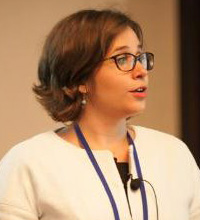Myths & Realities in the Arab World
The Arab world is a complex region. It is geographically, culturally, historically diverse, yet, from the outside, it is often perceived as a homogeneous region and stereotypes are applied across the board. In view of the great socio-political challenges that the Arab world is currently facing and the lack of independent data and research in the region, it is no wonder that many opinions are based on myths rather than realities.
Family businesses, as the most important and stable economic actors, often suffer from outdated notions when attempting to partner and collaborate internationally and seek business opportunities across the globe.
Addressing some of these outdated generalizations might help to better understand a region that is facing many challenges and yet has great potential and opportunity.
Myth:
The Arab economies are all similar to each other.
Reality:
As mentioned, the Arab world is a very diverse region. It is spread over two continents and no two countries function the same. In order to understand the diversity, it is important to see the differences in the three sub-regions, North Africa, the Levant, and the Gulf countries. According to the WEF 2013 Arab World Competitiveness Report, North Africa shows relative strengths in health and basic education, market size and the macroeconomic environment. The Levant (mainly Lebanon and Jordan) benefits from relatively strong educational outcomes but its challenge lies in infrastructure shortages and their small market size. In the Gulf countries, the challenge mainly is the relative lack of innovation, whilst companies benefit from a stable macroeconomic environment with a strong drive for growth.
In addition, contrary to general perception, only a minority of the region are oil-producing countries. The rest of the region are oil importers and rely on other industries for economic growth.
In terms of family business sustainability the regional differences can also be seen: there are not many clear trends emerging throughout the region. Even though all subjects including governance, succession, innovation, and strategy are being discussed throughout the Arab world, the sub-regional and local approaches and solutions greatly vary.
Myth:
There is little interesting private sector activity in North Africa and the Levant (Lebanon, Jordan, Syria, Palestine).
Reality:
It is surprising that the North African and Levant private sector often goes unnoticed. Despite including some of the region’s largest economies (and Africa’s largest country, Algeria) this part of the Arab world has not enjoyed as much attention as, for instance, the Gulf countries, which include heavily mediatized cities such as Doha and Dubai. But Northern Africa and the Levant are home to a vibrant private sector that defies many infrastructural challenges and high unemployment rates and pushes for innovative growth and expansion. We are slowly seeing a gradual shift in perception as the digital participation of North African and Levantine millennials sheds more light on the activities in their countries and also holds a great number of entrepreneurial success stories.
Myth:
Women in the Arab world are not or cannot be active in business.
Reality:
Women have always been part of business and trading in Arab countries. Whether as the unspoken matriarchs of large tribal business families or as savvy entrepreneurs running their own companies, women in the region always have, and will continue to play, a crucial role in Arab business. In family businesses in particular there is a clear trend of women being included not only in ownership succession but also in management positions. Countries like the UAE, Egypt, and Tunisia have women in high-ranking positions in the private and public sector. There is also a great number of young women starting their own companies. For example, according to a recent academic paper, 16% of businesses in Saudi Arabia are owned by women. A number, which is set to sharply rise over the next years, due to better education, ease in regulation, and exposure to international best practice. Of course, there are still many obstacles preventing women from fully participating in the economy, however it is important to highlight all that has been achieved despite those obstacles.
Myth:
The Next Generation members of Arab family businesses feel entitled to their wealth.
Reality:
A very small percentage of Arab youth, made visible by international media, has over the past years created the impression that next generation of Arab businesses feel entitled to their wealth. Yet, the large majority of young family members are highly dedicated to continuing the legacy of their family and feel a strong commitment to their companies. Young family business members often start at the very bottom in their family business, face more scrutiny than non-family members, and are constantly tested on their capacity and capability of being a potential successor. Whilst they feel proud of their heritage, they are aware that maintaining that legacy requires a lot of work.
Myth:
Arab family businesses are not open to innovation.
Reality:
Family businesses in certain parts of the Arab world are sometimes perceived as being too traditional to embrace innovation and new technologies. However, with the millennial generation joining the companies, this is rapidly changing and the integration of technology solutions is successful in most cases. Family businesses also have started investing in strategic R&D and are beginning to see the benefits of diversifying their activities into new industries. As the regional challenges have intensified, especially SMEs have become very focused on problem solving, which in turn has brought about interesting new ideas and increased efficiency.
This article is by no means meant to diminish the great many challenges Arab countries and their private sectors are facing. However, these challenges, just like opportunities, change over time. It is important that we work on developing more and more reliable data to help us bust myths and acknowledge the new realities.
About the contributors
 Ramia M. El-Agamy is the editor-in-chief of Tharawat magazine, a global publication for family business good practice founded by her father in 2008. She can be reached at editor@tharawat-magazine.com.
Ramia M. El-Agamy is the editor-in-chief of Tharawat magazine, a global publication for family business good practice founded by her father in 2008. She can be reached at editor@tharawat-magazine.com.
 Farida F. El-Agamy has been the general manager of the Tharawat Family Business Forum, the first knowledge resource and networking hub for family-owned companies in the Middle East and North Africa, since 2008. She can be reached at farida@tharawat.org.
Farida F. El-Agamy has been the general manager of the Tharawat Family Business Forum, the first knowledge resource and networking hub for family-owned companies in the Middle East and North Africa, since 2008. She can be reached at farida@tharawat.org.




